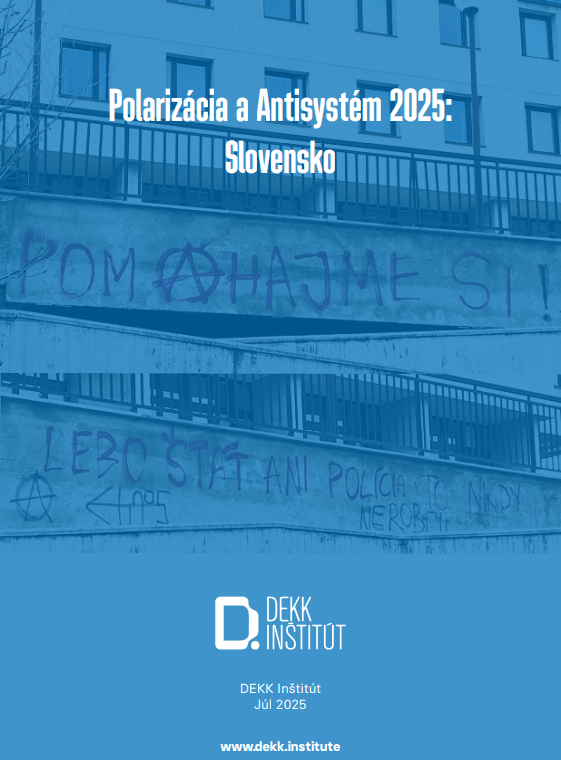Polarization and Antisystem 2025: Slovakia

- Kosnáč, P., Gloss, H., & Cigáneková, V. (2025). Polarizácia a antisystém: Slovensko. Bratislava: DEKK Inštitút & Ústav etnológie a sociálnej antropológie SAV, v. v. i.
The study “Polarization and Antisystem 2025: Slovakia” analyzes the current level of social and political polarization in Slovakia and the spread of anti-system sentiments among the population based on a representative quantitative survey.
The research shows that Slovakia is one of the most polarized countries in Europe (V-Dem Project) and, according to the Edelman Polarization Score, polarization in Slovakia is above average even in a global context. The study analyzes in detail the dynamics of natural and affective (i.e., toxic) polarization, identifies the cycle of polarization and the main factors that reinforce it, including economic inequality, social crises, the erosion of the moderate center, geopolitical disunity, and the spread of disinformation. The results of the study point to a weakening of social cohesion, a decline in trust in institutions and interpersonal relationships, and a rise in anti-system sentiment—up to 52.5% of the population believes that the “system” is deliberately harming them. The research also highlights the level of radicalization: 36% of respondents personally know someone who has begun to approve of violence against opponents. The data emphasizes that polarization extends across family, work, and social ties, with the division in society perceived as deep and persistent. The study recommends urgent attention and long-term measures to strengthen social cohesion in Slovakia.
Keywords:
polarization, antisystem, Slovakia, Slovak society, social cohesion